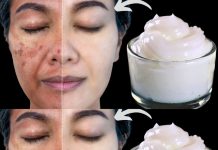Skin problems such as eczema, acne, and blemishes are a concern for many people. While treatment is effective for rough skin and unsightly blemishes, there is usually no single approach. In fact, many people with skin problems tend to try several creams and ointments, sometimes irritating the skin further. So the question arises, “Is there a more natural way to solve skin problems?
What is Apple Cider Vinegar?
Apple cider vinegar is probably best known as a cooking ingredient, but it’s time to think outside the box. According to Women’s Health, apple cider vinegar is the most important ingredient for skin health; due to its pH properties, natural alpha hydroxy acids, and acetic acid, this vinegar works to soothe and restore the skin.
Why use apple cider vinegar for skin?
Apple cider vinegar has gained a reputation as an excellent source of treatment for skin management issues ranging from moderately dry skin to more serious problems such as psoriasis. According to Women’s Health magazine, the pH value of vinegar is very close to that of human skin. This similarity allows vinegar to soothe dry, itchy skin. Additionally, this natural acid is believed to shrink pores and tighten skin, acting as a natural toner.
Four Common Uses of Apple Cider Vinegar Home Remedies
According to the New Health Advisor, uses for apple cider vinegar include
Blemishes.
The naturally occurring alpha-hydroxy acids in apple cider vinegar help gently remove dead skin cells. Regular use over a long period of time can help reduce the signs of age spots appearing on the skin.
Directions for use: Apply Pure Apple Cider Vinegar (available here) directly to age spots. Rub the affected area with a cotton ball or soft pad. Leave for 30 minutes. Repeat twice daily for 6 weeks for best results.
Acne
The malic acid in apple cider vinegar makes it an excellent cleanser. Not only does it naturally soothe the skin, but it also acts as an anti-fungal and anti-bacterial cleanser.
Directions: use a small amount of apple cider vinegar (available here) as a skin cleanser. It is not necessary to make a mixture. However, rinse thoroughly with water.
Skin Tonic.
The astringent properties of apple cider vinegar are a great natural solution for toning the skin, reducing pore size and improving skin circulation.
To use: mix half a cup of water and half a cup of apple cider vinegar (get it here) with a few drops of lavender oil (get it here). Apply directly to skin with a cotton ball (available here) and allow to absorb into skin for 2 minutes. Rinse thoroughly with cold water. Repeat up to twice a day.
Relieve sunburn.
Sunburns are like burns, itchy, slow to heal and uncomfortable. Apple cider vinegar is a natural astringent and can speed healing while reducing itching and burning.
Directions: Mix equal parts cold water and apple cider vinegar . Apply directly to the burned skin, rubbing it in gently. Repeat several times a day as needed to soothe.
Other considerations.
Incorporating apple cider vinegar into your skin care regimen can be beneficial, but the results are not overnight, nor are they foolproof. According to a recent Healthline article, there are a few things to keep in mind.
- Some skin problems are more serious than just drinking vinegar and require a more rigorous treatment plan. For example, in some cases, eczema can lead to infections that require antibiotics to heal.
- Apple cider vinegar can irritate the skin and should not be used on open wounds. Even though it is a natural product, there is always the possibility of an allergic reaction. Signs of a reaction include rash, difficulty breathing, and swelling.
- Skin irritation may be severe. In some cases, apple cider vinegar may cause burning or irritation of the skin.
Always seek the advice of a health care professional before using this product or if any of these problems occur.










